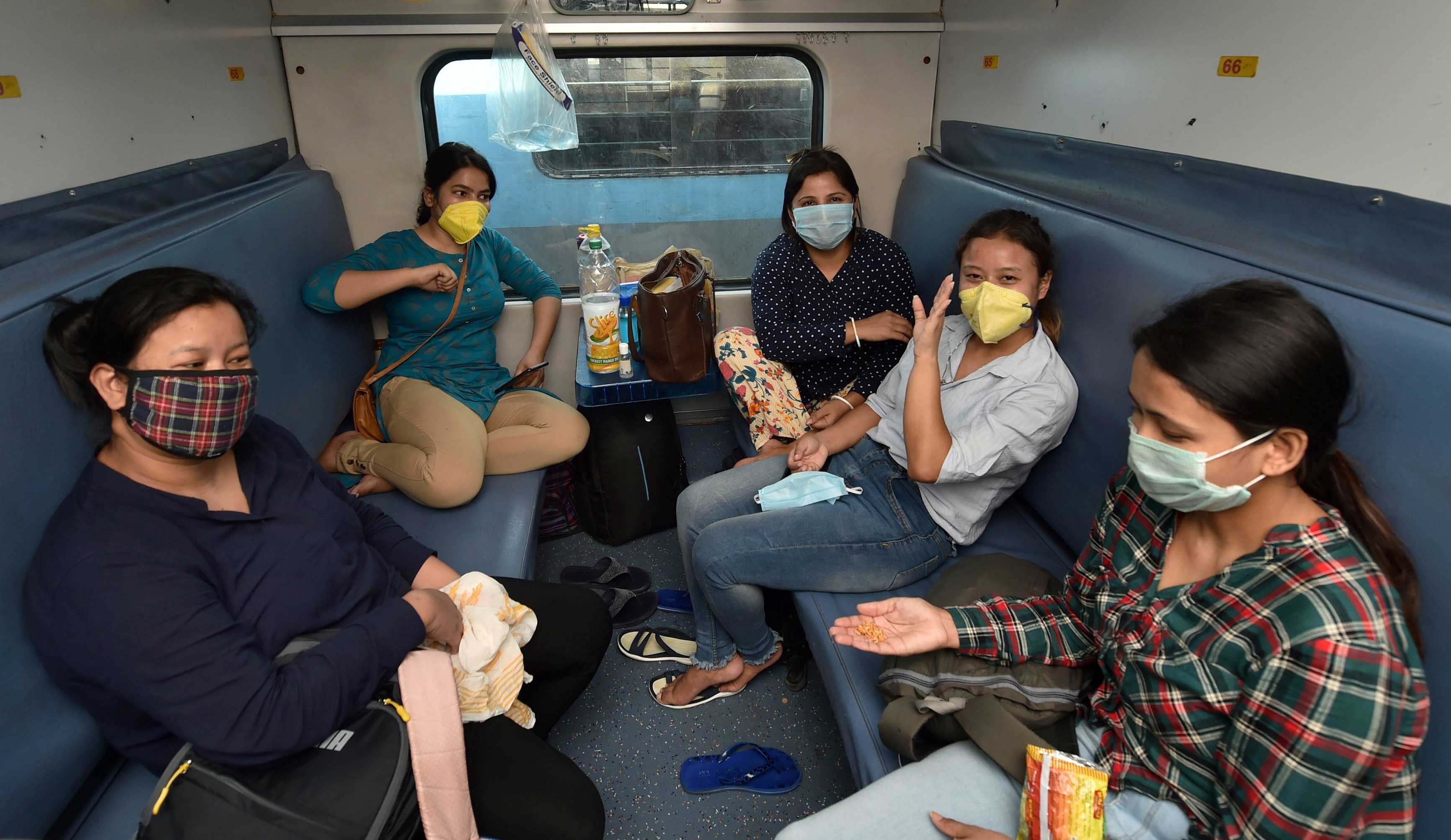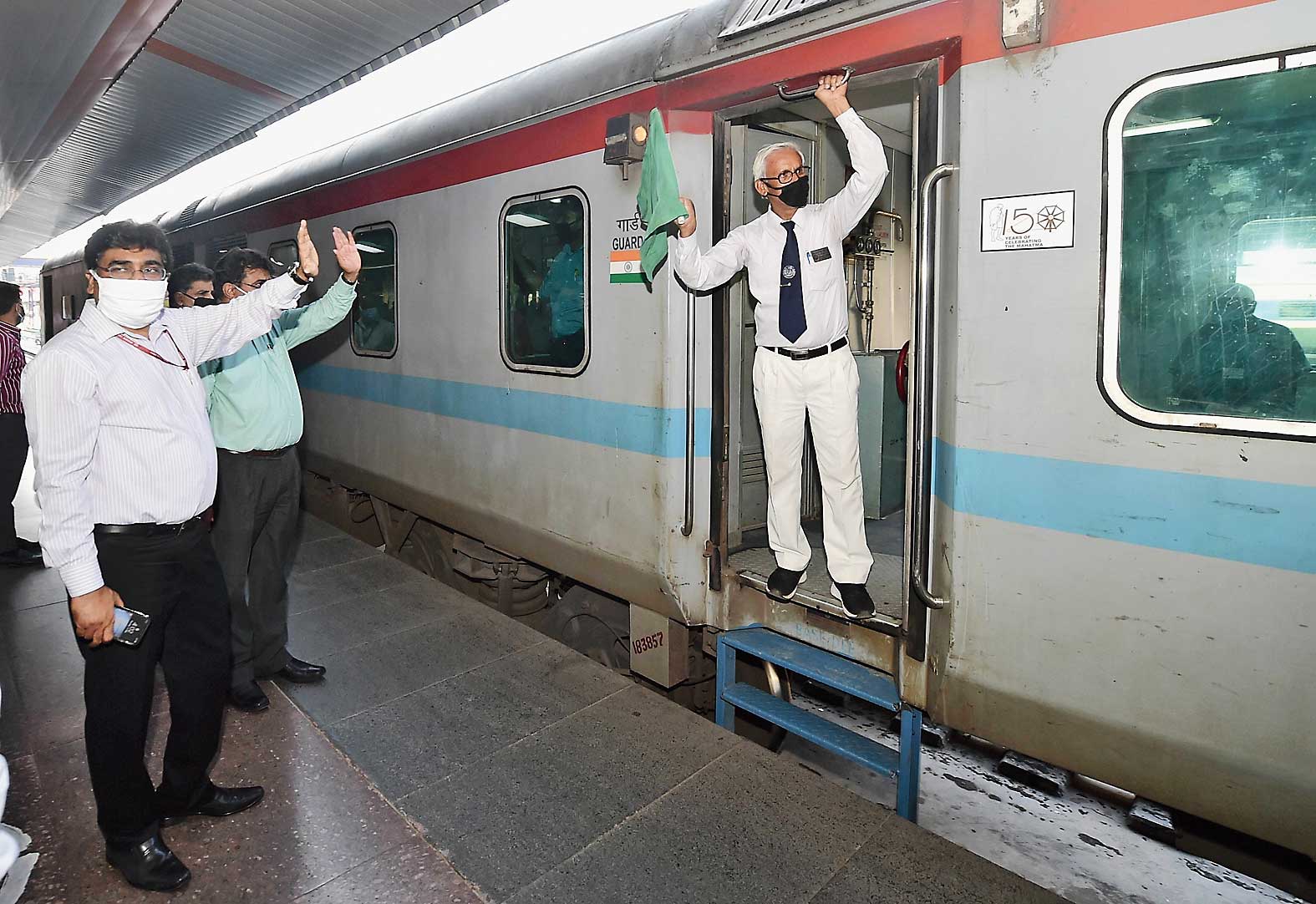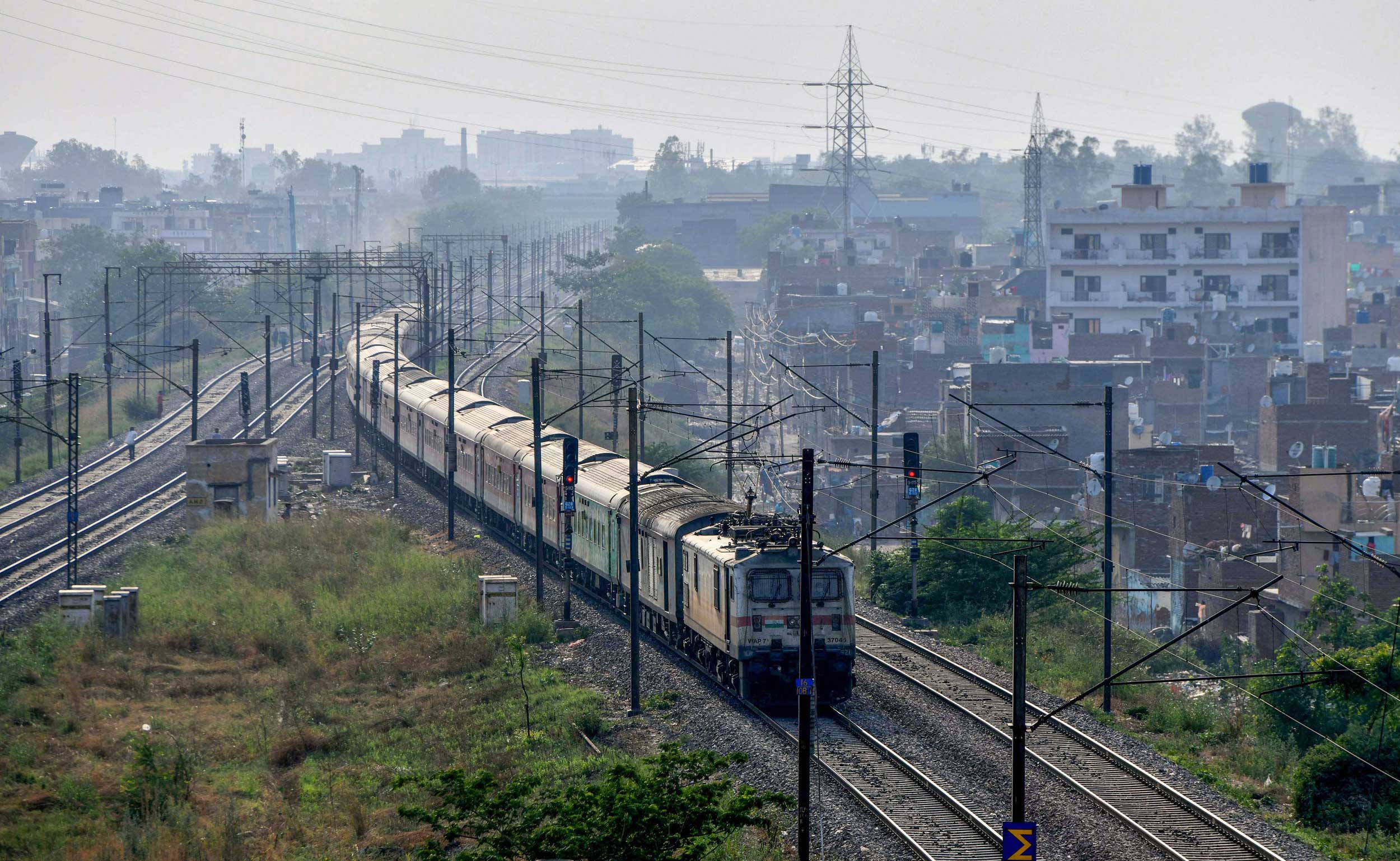Health authorities in Kerala who have done a remarkable job in flattening the Covid-19 curve have questioned the Indian Railways’ move to run fully air-conditioned trains from Tuesday.
“What is the logic of running air-conditioned trains? It can only increase the danger of more infections,” Dr Mohammed Asheel, executive director of the Kerala Social Security Mission, told The Telegraph on a day one of the first such trains rolled out from Howrah.
“When there is a cheaper and safer version in a non-AC, second-class sleeper coach, it’s beyond anyone’s imagination why they would run a more expensive and more dangerous air-conditioned train,” said the medical doctor who has been one of the pivots of Kerala’s mission against Covid-19.
Asheel pointed out that the central public works department’s protocol regarding use of air-conditioners called for avoiding ACs. “The Centre’s own guidelines say that air-conditioning should be avoided as much as possible and, when needed at homes, one must ensure the rooms are well-ventilated and windows must be open,” he said. “So how did they decide to schedule an air-conditioned train?”

Passengers sit inside a coach of the New Delhi-Dibrugarh special train at New Delhi Railway Station on Tuesday. (PTI)
Thirty such up-and-down Rajdhani trains have been scheduled to connect Delhi with 15 destinations.
Arun Sharma, director professor, department of community medicine, University College of Medical Sciences, New Delhi, agreed with Asheel. “The same air will be recirculating within a compartment for at least some time and, hence, if there is even one affected person, the virus will have a higher probability of infecting others in the compartment compared to (those with) open windows,” Sharma said.
Kunal Sarkar, a Calcutta-based physician and public health expert, said: “Considering India’s Covid-positivity rate of 5 per cent and about 1,000 persons in a train, one may assume about 50 positive cases (in a) train. Now, almost 24 hours in air condition, with no negative pressure and limited air exchange; the number of affected per train can be as high as 100 persons. Just imagine the impact that will bring on the destination cities.”

Railway Board chairman VK Yadav waves as the first special train, New Delhi-Bilaspur, leaves the New Delhi railway station on Tuesday. (PTI)
A senior official with Southern Railway told this newspaper the fully air-conditioned trains were being used because of the paucity of regular coaches. “We are unable to run the non-AC, three-tier coaches since most of them are being used for Shramik Express trains for migrant workers and rail coach quarantine centres,” said the official.
Some states have turned train compartments into temporary quarantine centres to make up for the shortfall of institutional quarantine facilities.
“The coaches are fitted with a new air-conditioning system to minimise the chance of spread of infection,” the railway official said but pleaded ignorance about the technical details.
The railway notification, dated May 11, says “all passengers shall be compulsorily screened and only asymptomatic passengers… allowed to enter/board the train”.
But Dr Joseph Chacko, president of the Kerala Government Medical Officers’ Association, said: “Since 80 per cent of all cases were asymptomatic, an air-conditioned environment for a train journey of 36-40 hours would be ideal for a spread.”
Santanu Sen, Trinamul MP and secretary of the Bengal unit of the Indian Medical Association, said: “It is one thing to make a guideline and a completely different (thing) to ensure such guidelines will be adhered to throughout the travel. Who will take the responsibility if such trains prove to be a super spreader of the virus?”
Anumita Roy Choudhury, an air pollution expert from the Center for Science and Environment, said: “It is strange how the government could decide on AC trains at this juncture when they themselves are advocating less use of AC as well as the need to stay in a well-ventilated space.”
What about the special flights ferrying hundreds of expatriates back to India?
Asheel, the Kerala doctor, said air travel did not provide for any other option. “We are ready to handle any situation as we have enough beds and sufficient expertise,” he said, speaking about his state. “But why invite trouble with a risky mode of transport?”
Kerala has already paid a price after the Centre ignored its advice and allowed NRIs to travel without pre-flight tests for Covid-19. Six people who flew down from the Gulf recently have tested positive over the past few days.
Chief minister Pinarayi Vijayan too spoke about the danger of air-conditioned travel during the pandemic.
“In Punjab, 4,198 people travelled in AC buses (after the Covid-19 outbreak). The virus spread in a big way during the journey and 1,217 of them tested positive,” he told a media briefing on Tuesday.
“I don’t know why they decided to run air-conditioned trains, especially when the health minister (Harsh Vardhan) is a medical doctor,” Chacko said, pointing to the restrictions even at offices and shops.
“Kerala has made it clear that no air-conditioning would be allowed in shops or offices,” the doctor added. “We need to follow this until further orders.”











